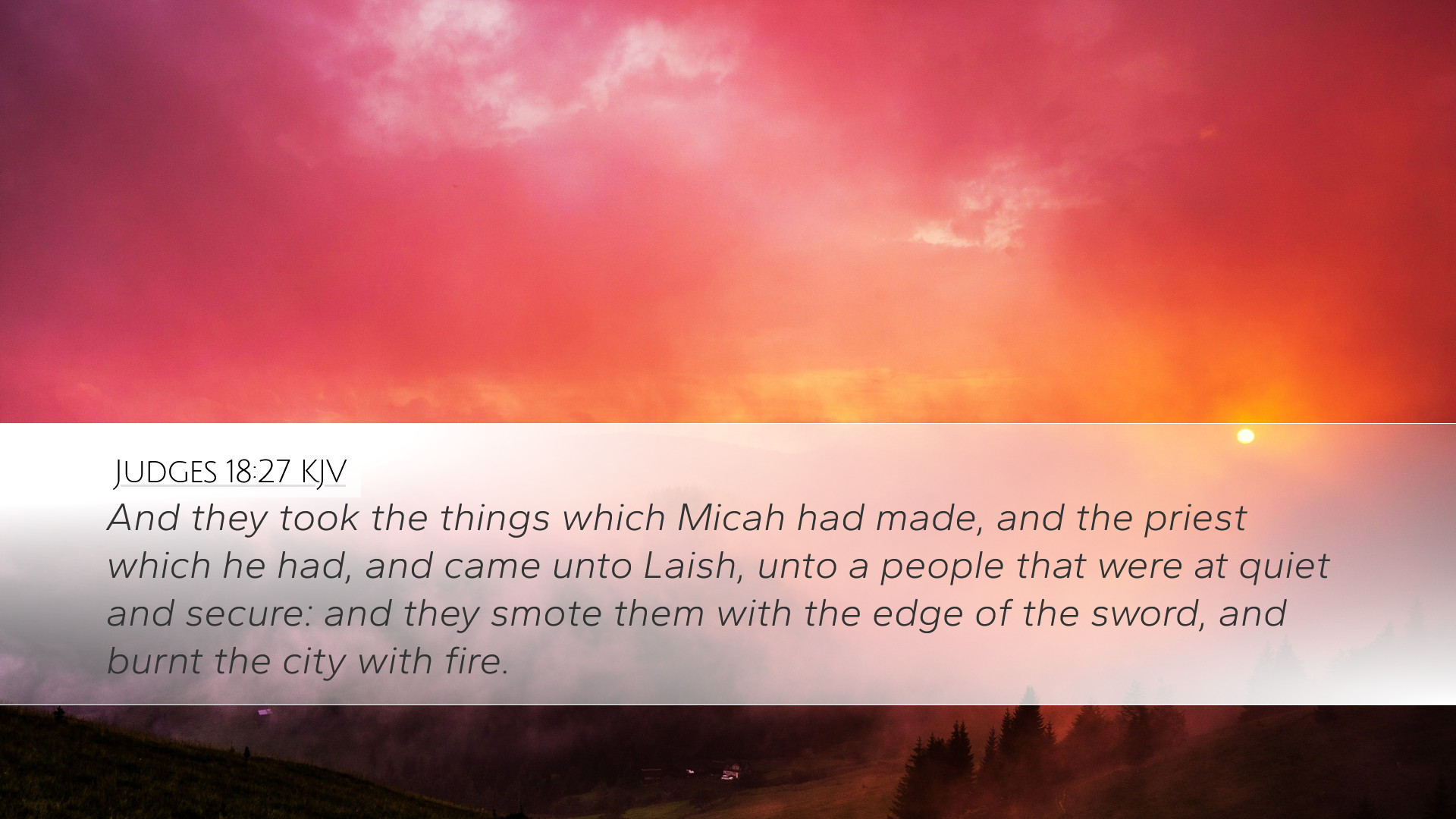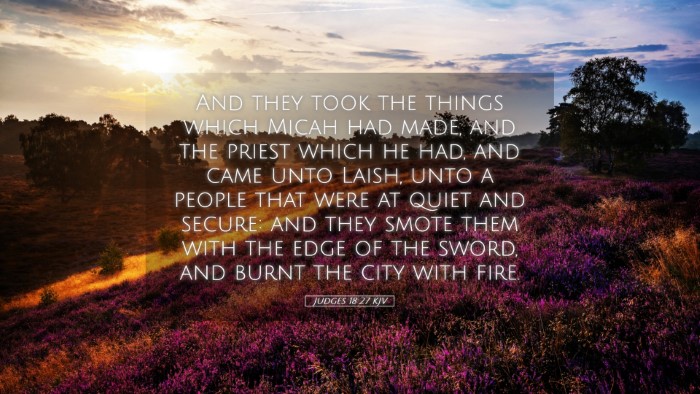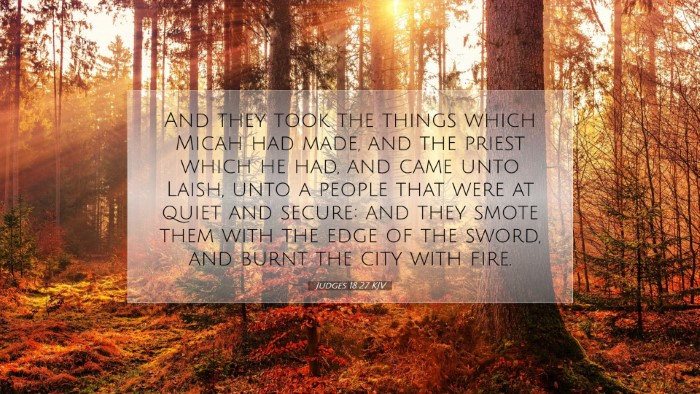Commentary on Judges 18:27
Contextual Background
Judges 18:27 occurs within the narrative of the tribe of Dan, as they seek a territory of their own. This story illuminates the tensions and struggles faced by the Israelites during the time of the Judges, a period marked by moral decline and disobedience to God’s covenant.
The Verse: Judges 18:27
"And they took the things which Micah had made, and the priest which he had, and came unto Laish, unto a people that were at quiet and secure: and they smote them with the edge of the sword; and burnt the city with fire."
Analysis of the Verse
This verse encapsulates several crucial themes: the ramifications of idolatry, the quest for security, and the contrast between divine justice and human actions. The tribe of Dan’s violence against the peaceful Laishites depicts a stark moral decline, while simultaneously demonstrating their desperation for a land of their own.
Robbery of Idolatrous Objects
According to Matthew Henry, the action of taking "the things which Micah had made" illustrates the peril of idolatry. Micah had set up his own sanctuary, which led not only to the loss of authentic worship among the Israelites but also represented a significant moral failing.
The Role of the Priest
Charles Spurgeon might emphasize the significance of the priest's role in this narrative. The Levite who served Micah left his duties to join the tribe of Dan, highlighting the disgraceful condition of the priesthood during this time—serving personal ambition rather than God’s glory.
The Conquest of Laish
Albert Barnes notes that Laish was a peaceful city, living in a secure state. This deliberate act of aggression by the Danites reveals a broader pattern in the book of Judges where God’s people forsake their responsibilities in favor of selfish ambitions. The brutality shown in the conquest marks a grave departure from God’s commands regarding warfare.
Theological Implications
Adam Clarke reminds us that this incident not only reveals the state of the Danites but also serves as a warning to subsequent generations. The ease with which the tribe moved from theft and idolatry to murder leads one to ponder the depths of human depravity when separated from divine principles.
Lessons for Today
- The Dangers of Idolatry: Just as Micah set up his idolatrous shrine, modern believers must examine their own lives for false gods that distract from true worship.
- Importance of Genuine Leadership: The departure of the priest from true worship shows the need for leaders who are devoted to God’s commands rather than their own interests.
- Consequences of Disobedience: The swift conquest of Laish serves as a stark reminder that abandoning God’s guidance leads to chaos and violence in our lives.
- Divine Justice and Human Agency: This passage challenges readers to consider the complexities of divine sovereignty and human free will, especially in contexts of ethical decision-making.
Concluding Thoughts
The narrative of Judges 18:27 stands as a significant reflection on the spiritual realities faced by the Israelites. It invites ongoing reflection on themes of idolatry, security, and moral integrity—a relevant discourse for contemporary readers seeking to navigate their own faith journeys amidst societal challenges.


